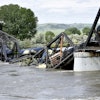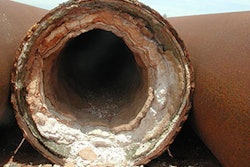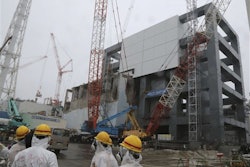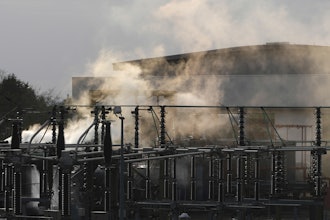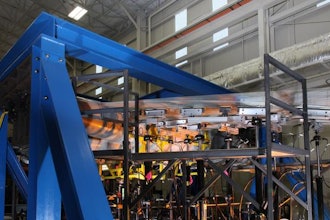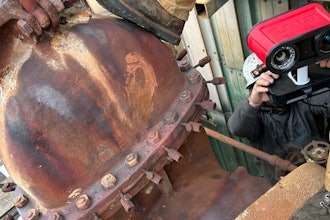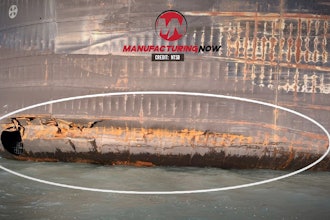BEIJING (AP) -- A November pipeline explosion in northern China that killed 62 people was caused by sparks from a jackhammer igniting oil that had leaked into the sewage system, revealing major vulnerabilities in China's aging pipeline network, government safety officials said Thursday.
The massive explosion Nov. 22 devastated a suburb of the port of Qingdao, leaving another 132 people injured. It ripped apart streets, tossed vehicles into the air and tore the fronts off buildings, causing at least 750 million yuan ($122.7 million) in damage.
A jackhammer being used to repair a manhole cover created sparks that ignited fumes from oil that had leaked after a rupture caused by corrosion in the pipeline, State Administration of Work Safety spokesman Huang Yi told reporters Thursday at a briefing to announce the results of an investigation into the disaster.
Huang said human error was involved, and that both municipal officials and state oil company Sinopec, which operated the pipeline, bore responsibility for failing to carry out inspections and for weak emergency response.
"This was an accident for which people bear responsibility," he said.
At least nine people have reportedly been detained, seven of them from Sinopec, China's largest oil refiner. Huang said the investigation report would be submitted to China's Cabinet for review, a process that sometimes leads to further legal action.
Huang said the pipeline had been situated too close to the city's sewage network and to neighboring buildings.
Parts of China's 102,000-kilometer (63,383-mile) network of oil and gas pipelines are 40 years old, and corrosion paired with their intertwining with municipal pipelines puts them at high risk for accidents.
Since last year's explosion, inspections have discovered 20,000 potential hazards that are now being dealt with, said Wang Haoshui, an inspector with the administration in charge of safety at petrochemical plants.


